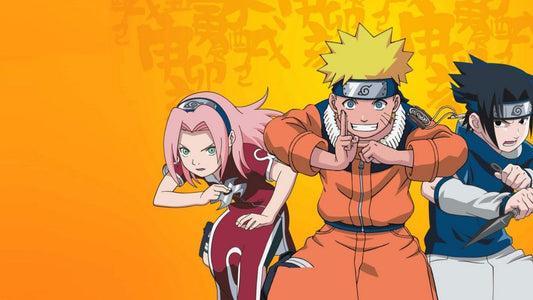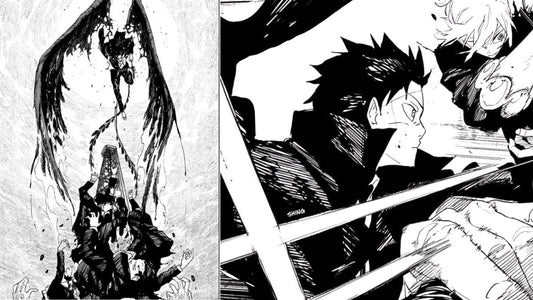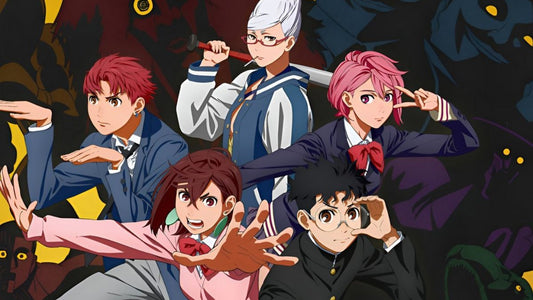
Exploring Dragon Ball DAIMA's Missed Opportunity: Vegeta's Nightclub Episode
Jared JohnsonShare
Vegeta's Journey in Dragon Ball DAIMA: An Underserved Highlight
Vegeta, a pivotal character since the Super Buu saga of Dragon Ball Z, finds himself in a diminished role in Dragon Ball DAIMA. With his character teased in the opening episodes, fans were led to expect a significant presence for the Saiyan Prince. Yet, the narrative largely sidelines him, missing the opportunity to delve deeper into his character through unique storytelling avenues like the nightclub flashback in Episode 9.
Missed Opportunity: A Nightclub Episode
In Episode 9, viewers catch a glimpse of what could have been a captivating episode through a flashback. Vegeta, along with Piccolo, Bulma, and Hybis, ventures into the Demon Realm’s vibrant nightlife, culminating in a scuffle with demons. This brief sequence, set in a neon-lit nightclub, had the potential to break away from DAIMA's formulaic storytelling.
A full episode dedicated to this scenario would not only have offered a refreshing pace change but also provided a deeper look into Vegeta's character development and interactions. His antics at the nightclub could have explored his relationship with Bulma post-DBZ, showing how Vegeta navigates complex emotions like pride and love.
For more on Vegeta's character arc through Dragon Ball history, read further.
Character Development: The Untapped Potential of Vegeta, Piccolo, and Bulma
Vegeta's treatment as a secondary character is especially surprising given his status as a deuteragonist in Dragon Ball Super. This minimized presence not only stifles his growth but also impacts other characters like Piccolo and Bulma. Piccolo's ties to the Demon Realm through Neva offer a rich storyline that could intertwine with Vegeta's plot, providing both drama and comic relief. Bulma’s interactions with Vegeta, meanwhile, could underscore their dynamic post-Buu Saga, blending humor with insightful character moments.
Hybis, the quirky addition to the cast, also stands to gain from a fuller exploration in such an episode. His peculiar demeanor could contrast beautifully with the club’s chaotic setting, offering light-hearted moments that add depth to his character. More on Dragon Ball's world-building can be discovered here.
Utilizing DAIMA's World-Building Strength
Dragon Ball DAIMA excels in world-building, introducing intriguing layers to the Demon Realm. A nightclub episode could have expanded on this strength, revealing cultural nuances and societal structures within the Demon Realm. It could have served as a backdrop to investigate Piccolo's own narrative arc, offering insights into his relationship with the Demon Realm and the internal conflicts he faces.
Such an episode could have paralleled the success of Episode 3, where a bar scene illustrated the Third Demon World's culture while advancing the plot. A similar approach could have turned Vegeta's nightclub outing into a character-driven story rich with narrative potential and visual flair.
Moving Forward: A Call for Character-Centric Storytelling
As Dragon Ball DAIMA progresses, it's crucial to reintegrate Vegeta, Piccolo, Bulma, and Hybis into meaningful plotlines. The missed opportunity with the nightclub flashback highlights the need for episodes that focus on character development and dynamic interactions. By embracing this storytelling method, DAIMA can provide its iconic characters the narrative spotlight they deserve, paired with significant battles reminiscent of Dragon Ball's storied past.
For a deeper dive into the impact of character dynamics in Dragon Ball's success, explore further.
Dragon Ball DAIMA continues to chart its course through uncharted territories, promising new adventures and challenges. With thoughtful narrative choices, it can pay homage to its rich history while carving a unique path for beloved characters like Vegeta.
Photo Credit by CBR



